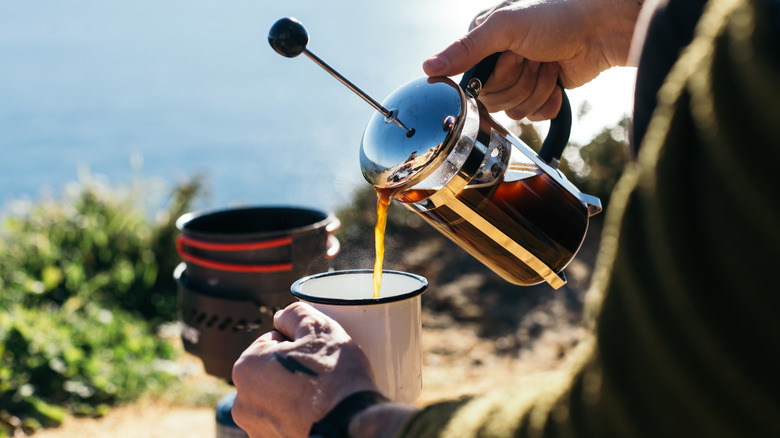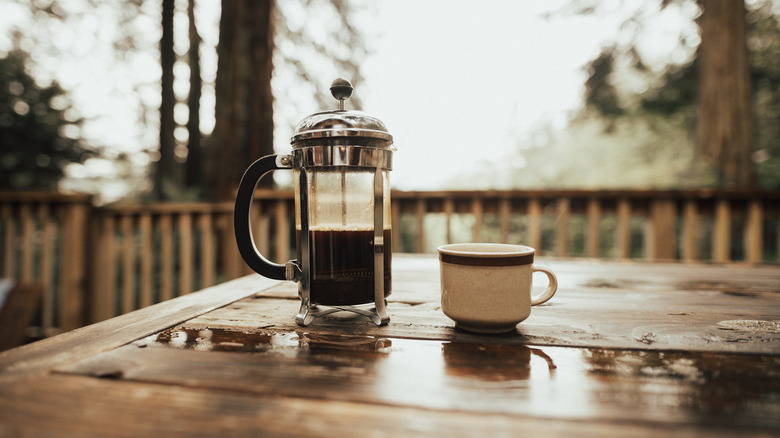The Science Behind French Press Coffee
Coffee is more than a beverage. For many, it is a way of life, a guiding light to carry them through this weary world. For the most devoted among us, the brewing process is a sacred act. Your method of choice speaks volumes about you on a deep level. Perhaps that's all a bit much, but everyone has at least one coffee-head in their life who has eagerly tried to convert them to their favorite brewing method, be it espresso, pour-over, or a new-fangled Aeropress. The French press is perhaps the simplest approach, but it remains one of the most beloved.
Most methods of coffee-making rely on forcing hot water through a bunch of coffee grounds, but the French press method relies on slowly steeping the grounds in water, much like a cup of tea (via Epicurious). It's highly convenient, as the process requires next to no effort on your end. Choosing coarsely-ground coffee is essential to keeping sediment out of your cup, but if you do it right, the finished product will have a full-bodied, sweet flavor that many prefer to other brewing methods.
A French press makes a sweeter brew
On the scientific side of things, coffee is a solution, composed of solutes dissolved in a solvent (via Encyclopedia.com). Water is known as the 'universal solvent' because it can dissolve so many different things, but still, only some of the compounds in coffee beans are soluble (dissolvable in water), which is why you're left with a mess of wet grounds after brewing. According to Royal Coffee, the soluble compounds in coffee are primarily fruit acids, caffeine, lipids, carbohydrates, plant fiber, and melanoidins (byproducts of the Maillard reaction that occurs in coffee roasting). Each of these compounds dissolves into the water at a slightly different rate. Your choice of brewing method can actually keep certain less desirable compounds out of your cup.
Royal Coffee explains that fruit acids and caffeine dissolve faster than the other compounds in coffee, which is a good thing since they are the most desirable elements. The carbohydrates and plant fibers, which dissolve last, have a bitter flavor, and too much of them can spoil the taste of the final product. According to Serious Eats, the drip and pour-over methods, which expose the coffee grounds to a constant flow of hot water, quickly strip away the tasty compounds and tend to over-extract the flavors. This method produces a less satisfying brew. The slow steeping employed in the French press method is gentler, preventing over-extraction and delivering a sweeter, more full-flavored cup of coffee.

